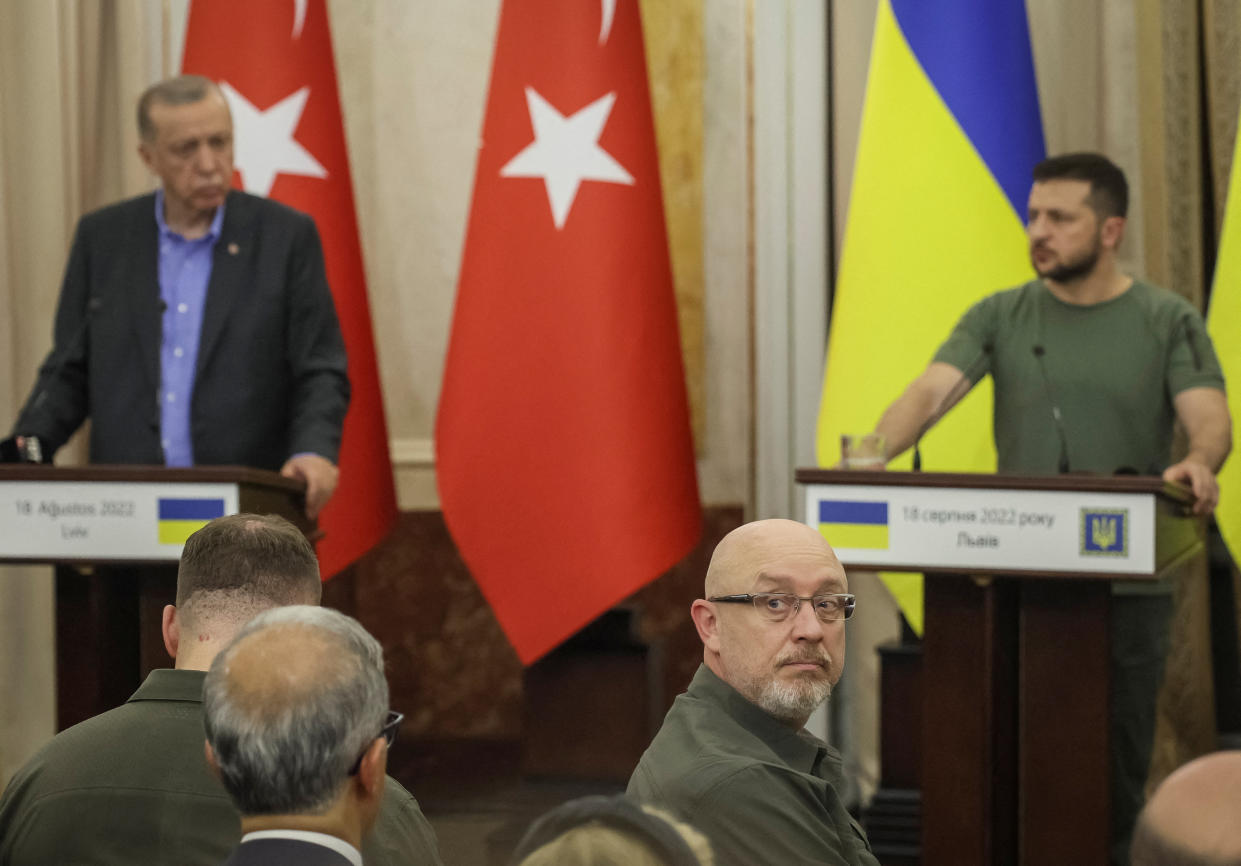Ukraine: Damage to Zaporizhzhia nuclear plant would be 'suicide', says UN chief

The head of the UN has issued a stark warning over the Russian-occupied nuclear power plant in Ukraine, saying any damage to it would be "suicide".
Antonio Guterres, Secretary-General of the UN, called for Zaporizhzhia plant - Europe's largest nuclear power plant - to be demilitarised, saying he is "gravely concerned" about the situation.
Speaking to reporters after he met for talks with Ukrainian President Volodymyr Zelenskiy in Lviv, Guterres said: "We must tell it like it is - any potential damage to Zaporizhzhia is suicide."
He said the plant should not be used as part of "any military operation" and an agreement was urgently needed to: "re-establish Zaporizhzhia's purely civilian infrastructure and to ensure the safety of the area".

The UN Secretary-General's warning comes after UK defence intelligence analysts warned that Russia's actions had "likely undermined the security and safety" of operations at the Zaporizhzhia facility, which was taken over by Russian troops in March shortly after their invasion of Ukraine on 24 February.
It also comes as Russia dismissed media speculation that it might deploy nuclear or chemical weapons in its offensive in Ukraine as "absolute lies".
The Russian foreign ministry said on Thursday that it would only use nuclear weapons in "emergency circumstances" and Moscow has no interest in a direct confrontation with NATO and the United States and no need to use nuclear weapons during its military campaign in Ukraine.
Read more: 'Cannibal' solar storm set to brighten British skies with Northern Lights
Various experts have issued warnings over the occupation of the Zaporizhzhia plant, which is in the south-eastern Ukrainian city of Enerhodar.
UN nuclear chief Rafael Grossi described it as "completely out of control" and urged Russia and Ukraine to allow experts to visit the complex as part of efforts to avoid a nuclear accident, but another official downplayed the fears, saying the site was still "functioning effectively".

In a statement issued on 5 August, the UK Ministry of Defence said in a statement: "Following five months of occupation, Russia’s intentions regarding the Zaporizhzhia Nuclear Power Plant remain unclear.
"However, the actions they have undertaken at the facility have likely undermined the security and safety of the plant’s normal operations.
It added: "Russian forces are probably operating in the regions adjacent to the power station and have used artillery units based in these areas to target Ukrainian territory on the western bank of the Dnipro river.
"Russian forces have probably used the wider facility area, in particular the adjacent city of Enerhodar, to rest their forces, utilising the protected status of the nuclear power plant to reduce the risk to their equipment and personnel from overnight Ukrainian attacks."


